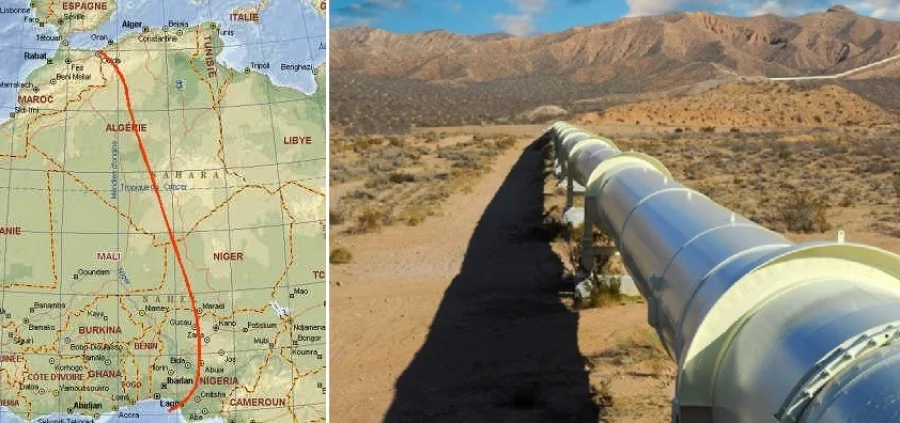The Nigerian Government has strengthened talks with the Kingdom of Morocco to quicken the process of achieving the Final Investment Decision on the $30bn Nigeria-Morocco Gas Pipeline.
The two countries held discussions about the agreement on the sidelines of a meeting between the Minister of State for Petroleum Resources (Gas), Ekperikpe Ekpo, and the Moroccan Minister of Energy Transition and Sustainable Development, Ms. Leila Benali.
The Nigerian National Petroleum Company Limited said this in a statement issued in Abuja on Thursday.
The statement said the meeting was anchored by the Executive Vice President, Gas, Power and New Energy, NNPCL, Olalekan Ogunleye, and the Director-General, Morocco National Office of Hydrocarbons and Mines, Amina Benkhadra.
Nigeria, Morocco, Cote d’Ivoire, Liberia, Benin, and Guinea had signed four Memoranda of Understanding for the construction of the $30bn Nigeria-Morocco Gas Pipeline Project at the Abuja headquarters of the Economic Community of West African States.
The agreements were signed between the NNPCL and the Office National des Hydrocarbures et des Mines of Morocco on one hand, and the Société Nationale des Opérations Pétrolières of Cote d’Ivoire, the National Oil Company of Liberia, the Société Nationale des Hydrocarbures of Benin, and the Société Nationale des Pétroles of the Republic of Guinea on the other hand.
It said that the MoUs, similar to those signed with ECOWAS on September 15, 2022, Mauritania and Senegal on October 15, 2022, and The Gambia, Guinea-Bissau, Sierra Leone, and Ghana on December 5, 2022, reaffirmed the commitment of the parties to the strategic project.
The NNPCL had said that discussions on the Final Investment Decision for the project continued, as the talks focused on how to drive the partnership between Nigeria and Morocco to accelerate the project.
It noted parties in the deal discussed how to achieve the Nigeria-Morocco Gas Pipeline Project in line with the series of Memoranda of Understanding signed between the two countries in Abuja in 2022.
According to it, both countries emphasised the strategic importance of the project to Nigeria and Morocco, as well as the entire African continent.
The countries also discussed the need to drive the project to completion expeditiously in line with the objective of stemming energy poverty on the African continent, according to the statement.
The Cooperation Agreement for the 48” x 5,300km pipeline from Nigeria to Dhakia, Morocco, and 1,700km from Dhakia to Northern Morocco, was signed in 2017 with a capacity of 30 billion cubic meter per year (equivalent of three billion standard cubic feet of gas per day).
The pipeline would traverse the Republic of Benin, Togo, Ghana, Cote d’Ivoire, Liberia, Sierra Leone, Guinea, Guinea-Bissau, Gambia, Senegal, Mauritania, and terminate in Morocco with a spur to Spain.
Due to the international nature of the project, the ECOWAS Commission is saddled with the responsibility to, among other things, facilitate inter-governmental treaty and host government agreements.
It is to also establish a Pipeline Higher Authority, and work in alignment with the African Union, United Nation and other relevant international bodies.
The project, among other things, will help drive the monetization of Nigeria’s gas resources and promote economic and regional cooperation among African countries.




